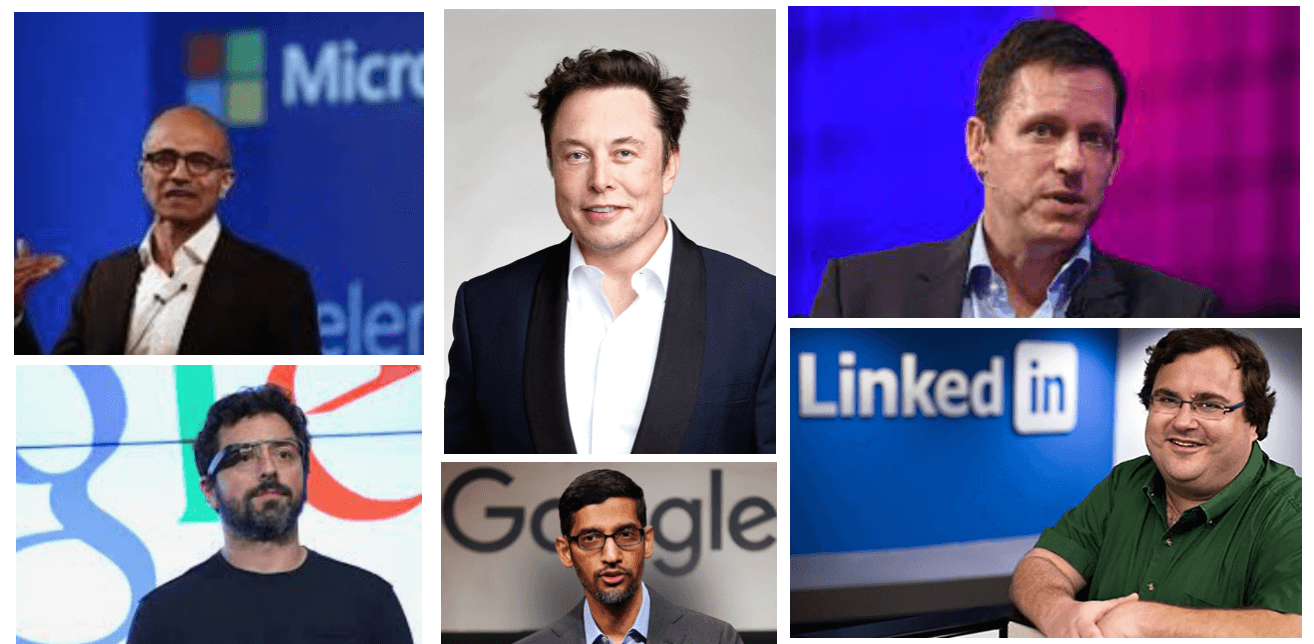Studying abroad can be a life-changing experience, as it exposes individuals to diverse cultures, languages, and perspectives. This enriching experience has contributed to the success of many famous personalities, who leveraged their international education to achieve remarkable heights in their respective fields. Here, we present the 10 most successful people who studied abroad, and how their experiences overseas helped them in their journey to success.
- Peter Thiel
Peter Thiel, a billionaire entrepreneur and venture capitalist, is the co-founder of PayPal and the first external investor in Facebook. Thiel studied at Stanford University in the United States, where he completed his bachelor’s degree in Philosophy and a Juris Doctor degree. Studying in a diverse environment such as Stanford contributed to Thiel’s global outlook, which has been instrumental in his numerous successful investments and ventures.
- Elon Musk
The CEO of Tesla and SpaceX, Elon Musk is a serial entrepreneur and one of the most influential people of the 21st century. Born in South Africa, Musk studied at Queen’s University in Canada before transferring to the University of Pennsylvania in the United States. Musk’s international education contributed to his ability to think big and innovate in various industries, such as electric vehicles, space exploration, and renewable energy.
- Reid Hoffman
Reid Hoffman, the co-founder of LinkedIn and a renowned venture capitalist, studied at Stanford University and then pursued a Marshall Scholarship to study at the University of Oxford in the United Kingdom. Hoffman’s time abroad honed his critical thinking skills and helped him forge valuable connections, which have been crucial to his success as an entrepreneur and investor.
- Albert Einstein
Albert Einstein, one of the most famous physicists in history, studied at the Swiss Federal Institute of Technology in Zurich, Switzerland. Einstein’s international education exposed him to diverse perspectives, which laid the foundation for his groundbreaking theories in physics.
- Sundar Pichai
Sundar Pichai, the CEO of Alphabet and Google, studied at the Indian Institute of Technology (IIT) before pursuing his Master’s degree in Materials Science and Engineering at Stanford University in the United States. Pichai’s time at Stanford allowed him to develop a global mindset, which has been vital in leading one of the world’s most influential technology companies.
- Satya Nadella
Satya Nadella, the CEO of Microsoft, was born and raised in India. Nadella earned his bachelor’s degree in electrical engineering from Manipal Institute of Technology before moving to the United States to study for a master’s degree in computer science at the University of Wisconsin-Milwaukee. Nadella’s international education helped him develop a global perspective, which has been key to his successful leadership at Microsoft.
- Sergey Brin
Sergey Brin, the co-founder of Google, was born in Russia before moving to the United States with his family. Brin studied computer science at the University of Maryland and later earned his Master’s degree at Stanford University. Brin’s international background and education exposed him to different cultures and ways of thinking, which played a crucial role in the founding and success of Google.
- Indra Nooyi
Indra Nooyi, the former CEO of PepsiCo, was born in India and studied at the Indian Institute of Management (IIM) before pursuing a Master’s degree in Public and Private Management at Yale University in the United States. Nooyi’s international education contributed to her understanding of diverse markets and cultures, which was pivotal in her successful leadership at PepsiCo.
- Carlos Ghosn
Carlos Ghosn, the former CEO of Renault-Nissan, was born in Brazil and studied in France at the É
cole Polytechnique and École des Mines de Paris. Ghosn’s international education and diverse cultural experiences were essential in his ability to navigate the complexities of the global automotive industry and lead Renault-Nissan through significant growth and expansion.
- Ursula Burns
Ursula Burns, the first African American woman to lead a Fortune 500 company, served as the CEO of Xerox from 2009 to 2016. Burns studied mechanical engineering at Polytechnic Institute of New York University before completing her Master’s degree in the same field at Columbia University. Burns’ education in the United States and her experiences in a multicultural environment equipped her with the skills and knowledge necessary to lead a global technology company.
The Benefits of Studying Abroad
The success stories of these ten individuals demonstrate the advantages of studying abroad. Some of the key benefits include:
- Exposure to different cultures and perspectives: Studying abroad allows students to immerse themselves in diverse cultures, which can broaden their worldview and improve their ability to think critically and creatively.
- Development of a global mindset: An international education helps students understand the interconnectedness of the world and the importance of global cooperation, which is essential for success in today’s fast-paced, globalized economy.
- Enhanced language skills: Studying in a foreign country often necessitates learning a new language, which can boost communication abilities and open doors to opportunities in various industries.
- Networking opportunities: International students have the unique opportunity to create a global network of friends and professional contacts, which can be invaluable for their careers and personal lives.
- Personal growth and independence: Living and studying in a foreign country can be a challenging experience that pushes students to become more adaptable, resourceful, and self-reliant.
In conclusion, studying abroad can be a transformative experience that equips individuals with the skills, knowledge, and perspectives necessary to achieve success in their careers and personal lives. The accomplishments of Peter Thiel, Elon Musk, Reid Hoffman, Albert Einstein, Sundar Pichai, Satya Nadella, Sergey Brin, Indra Nooyi, Carlos Ghosn, and Ursula Burns demonstrate the potential of an international education to shape the future leaders of our world.
